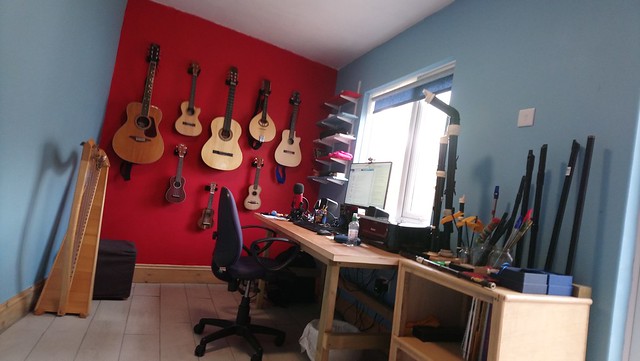Podcast: Play in new window | Download
In this Adventure in Etymology, we find connections between the word office and words like copy, manure, opera, opulence and opus.
An office [ˈɒfɪs/ˈɔfɪs] is:
- A room, set of rooms, or building used for non-manual work.
- A position of responsibility.
- An official position, particularly high employment within government.
(other meanings are available)
It comes from Middle English office [ɔˈfiːs(ə)] (employment, occupation, obligation), from Old French office (office, job, service), from Latin officium (duty, service, office, obligation) from opificium (work), from opifex (someone who does [creative / constructive] work) from opus (work), from PIE *h₃ep- (to work, toil, make, ability) [source].
Words from the same roots include copy, manure, opera, operate, opulence and opus (a work of music or art) in English; usine (factory) in French; ofício (craft, trade, profession) in Portuguese; oficina (office, workshop, laboratory) in Spanish, and ufficio (office) and officina (workshop, laboratory) in Italian [source].
Hang on, manure? It comes from Middle English maynouren (to supervise, reign, exercise one’s authority), from Anglo-Norman meinourer, from Old French manouvrer (to work, make, create), from Vulgar Latin *manuoperare (to work by hand), from Latin manū (by hand) and operārī (to work). The word manoeuvre comes from the same roots [source].
You can also listen to this podcast on: Apple Podcasts, Amazon Music, TuneIn, Podchaser, Podbay or Podtail and other pod places.
If you would like to support this podcast, you can make a donation via PayPal or Patreon, or contribute to Omniglot in other ways.
Radio Omniglot podcasts are brought to you in association with Blubrry Podcast Hosting, a great place to host your podcasts. Get your first month free with the promo code omniglot.
I also write about words, etymology and other language-related topics on the Omniglot Blog, and I explore etymological connections between Celtic languages on the Celtiadur blog.














